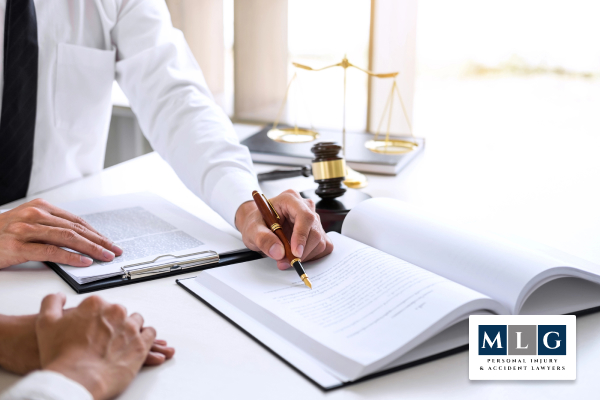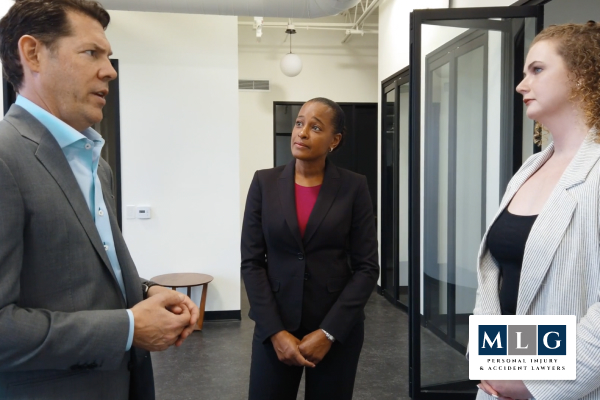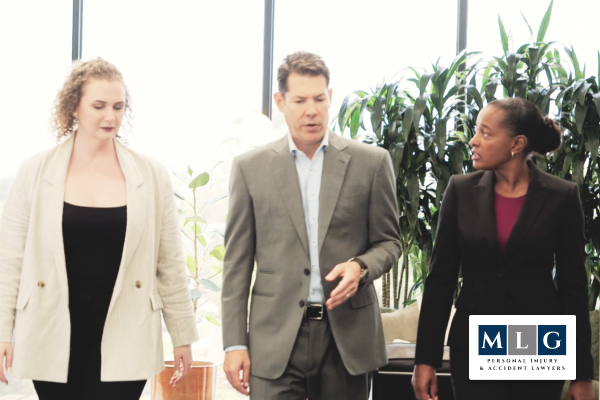
Losing a loved one is a devastating experience, and families rely on funeral homes to handle their own loved one's remains and ones with care and respect. However, when a funeral home fails to meet these expectations, it can lead to additional trauma and suffering.
At Marcereau Law Group, we understand the profound impact of funeral home negligence and are dedicated to helping you seek justice. Our sincere and transparent approach ensures you receive the support and representation you deserve. If you suspect funeral home negligence, we can help you.
Learn more about how to prove funeral home negligence below. Then, contact us if you have concerns about the other funeral home breached the services you received.
Funeral home negligence occurs when the services provided by a funeral home fall below the acceptable standards of care, which could harm the deceased's family. This can include mishandling of remains, improper embalming, or failure to follow the family's instructions. Funeral home negligence not only causes emotional distress but can also lead to legal action.
Often, families may not immediately recognize the signs of funeral director negligence, making it important to seek legal advice promptly. Understanding the nuances of funeral home negligence can help families protect their rights and seek appropriate compensation for funeral expenses.
A funeral home's negligence can manifest in various ways, including unprofessional conduct, administrative errors, fraudulent practices, and inadequate facilities. These failures can severely affect the grieving process, adding another stress to an already difficult time.
It is important for grieving families to be aware of their rights and to know that they can take legal action if they believe negligence has occurred. By holding funeral homes accountable, families can get justice for these incidents from happening to others.

Proving funeral home negligence involves establishing several key elements.
The duty of care is a key factor in negligence cases. Funeral homes must provide their services with a high level of care, respect the wishes of the family, and handle the remains with dignity.
This duty extends to all aspects of their services, including transportation, preparation, and burial or cremation. When a funeral home accepts the responsibility of caring for a deceased person, it enters into a legal obligation to fulfill its duties properly.
A breach of duty occurs when a funeral home fails to meet the expected standards. This can happen through acts of omission, such as neglecting proper embalming procedures, or through direct actions, like mishandling the remains.
Proving a breach requires demonstrating that the funeral home's actions did not meet industry standards or the grieving family one's expectations. Documentation and expert testimony can be important in establishing this breach.
Causation establishes a direct connection between the family's suffering and the violation of obligation. It must be shown that the funeral home's negligence was the primary cause of the emotional or physical distress suffered.
This often involves demonstrating that the harm would not have occurred if the funeral home had acted appropriately. Establishing causation can be complex, requiring detailed evidence and expert analysis.
Damages are the losses incurred by the family due to the carelessness of the funeral home. These can include emotional distress, additional funeral costs, and personal property, sometimes even physical harm.
To recover damages, the family must provide evidence of the specific losses punitive damages they have incurred. Damages can include receipts, medical records, and personal testimonies about the impact of the negligence.
The following are some common types of negligence evidence in a funeral home:

There are several steps involved in filing a negligence claim. They include:
Several factors influence the value of a funeral home negligence claim. The severity of the negligence and the resulting emotional distress plays an important role. Additional costs incurred due to the negligence, such as reburial or additional services, also impact the claim's value.
Finally, the strength of the evidence and the expertise of your legal representation can affect the outcome.

Marcereau Law Group leverages our extensive experience and expertise to maximize the value of your claim. Our team meticulously gathers and presents evidence to build a compelling case.
On your behalf, we negotiate with a strong defense to obtain the best settlement possible for legal claim. If necessary, we are prepared to take your case to trial to ensure you receive the justice and compensation you deserve.
A funeral home negligence claim can be complex and emotionally taxing. Our team is here to provide clarity and support. Below are answers to some frequently asked questions:
The statute of limitations for filing a negligence claim in California is two years. It is important to act promptly to ensure your legal rights are protected.
Many funeral home negligence cases are settled out of court through negotiations between your attorney and the funeral home's legal representatives. Settlements can provide financial compensation without the need for a lengthy trial.

If you believe you have been a victim of funeral home negligence, it is essential to seek legal advice as soon as possible. Likely, the funeral home owed you a duty of care they did not meet. Contact Marcereau Law Group to schedule a free case evaluation.
Our dedicated team will listen to your concerns, assess your case, and guide you through the legal process. We are committed to helping you seek justice and the compensation you deserve.
Schedule Your Free Consultation
"*" indicates required fields


"*" indicates required fields